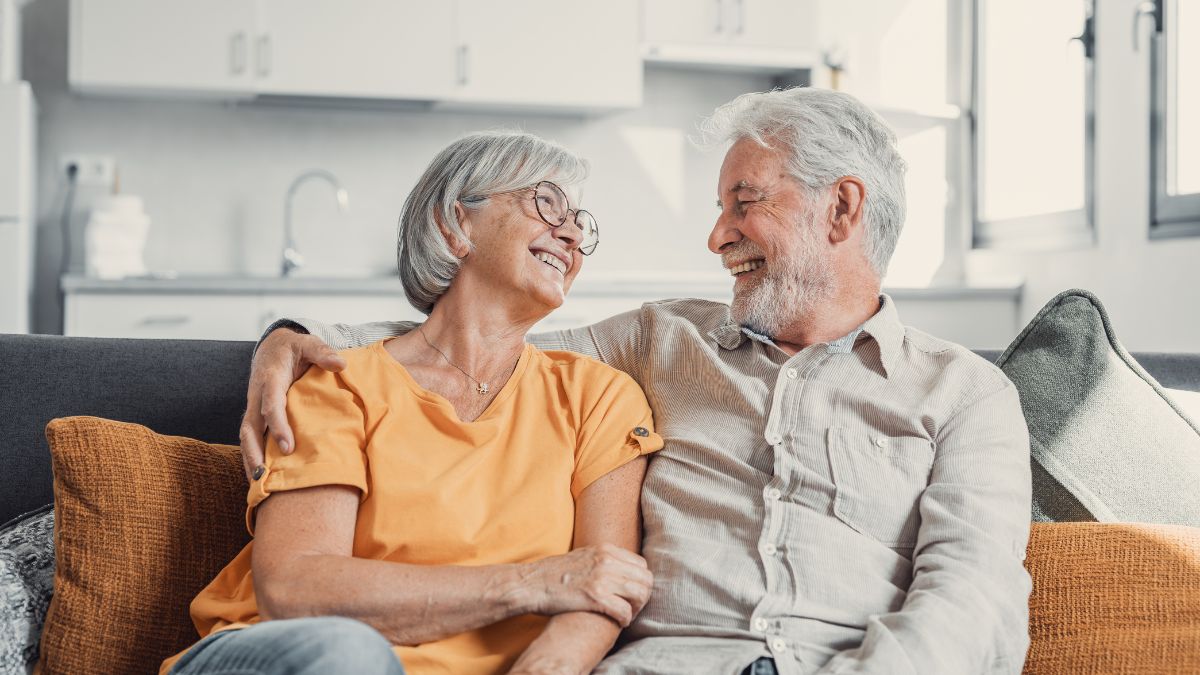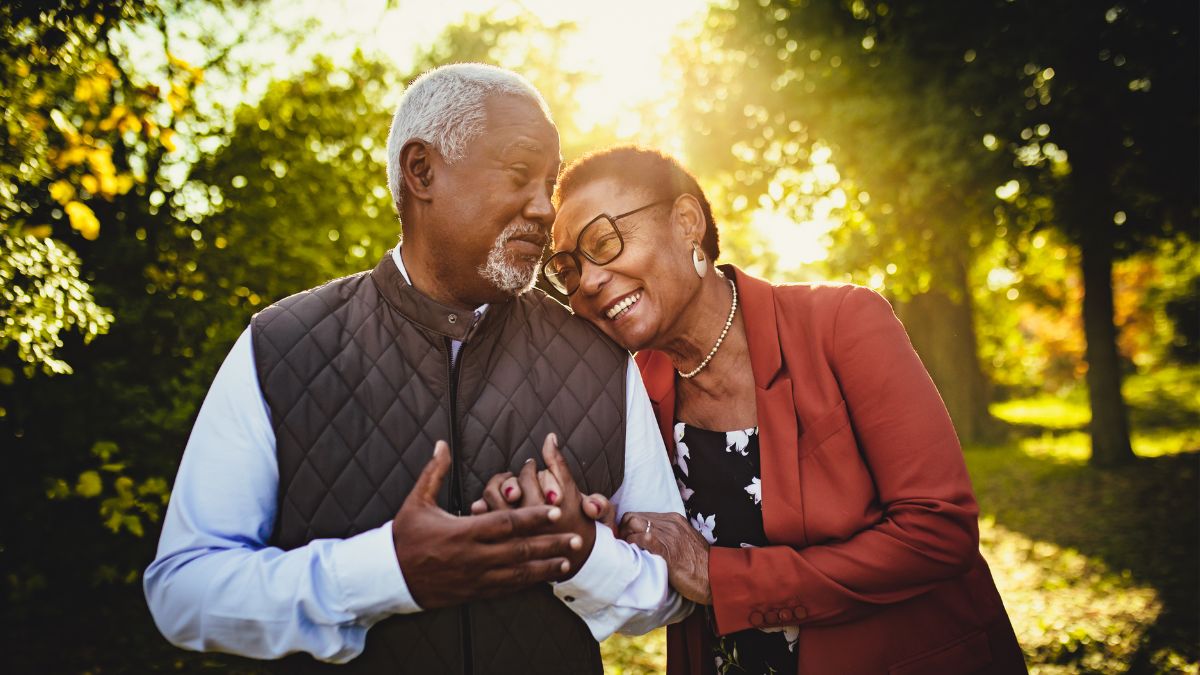Tender talk
5 tips for support with sexual side effects
Sexual side effects of treatment-related menopause in breast cancer

“Zero.” “In the basement.” That’s how many breast cancer survivors and healthcare professionals describe people’s desire for sex after menopause that’s caused by estrogen-blocking treatment. Whether it’s from medication or surgery, hormonal therapies for breast cancer that block estrogen can plunge pre-menopausal women into sudden menopause, or restart symptoms for those who are already menopausal.
When Claudia De Pasquale was diagnosed at age 41 with hormone-receptor positive stage I breast cancer, she thought that her exhaustion, vulvar pain, vaginal dryness, and complete lack of sexual interest were side effects of chemotherapy. “I was waking up eight and nine times a night, covered in sweat,” she remembers. With children ages 3, 5, and 7, Claudia wanted to treat her cancer as aggressively as possible to prevent recurrence. But estrogen suppression had a far greater impact on her quality of life than she expected. Eventually, she found a menopause specialist who was helpful.
Shay Sharpe, founder of Shay Sharpe’s Pink Wishes, dealt with hormonal therapy twice. Her first diagnosis with stage III breast cancer at age 26 was followed by five years of tamoxifen, which keeps estrogen from feeding growth of cancer cells. Ten years later when she had a recurrence, she started leuprolide (Lupron) to block estrogen production as well as an aromatase inhibitor (AI), which keeps your body from converting other hormones into estrogen. While the weight gain, aches and pains, and uncertainty she had on tamoxifen were “really rough,” Shay says, nothing prepared her for the overwhelming sense of heat and 50-pound weight gain she experienced while taking an AI. Her partner said she was no longer the “frisky, spontaneous, sexual being” she had been. But Shay says, “I was so hot, so miserable. I just wasn’t myself!”
Changes in breast sensitivity, body image, fatigue, fear, and anxiety may also reduce pleasure or interest in sex. Even post-menopausal women may experience a surge in side effects from hormonal therapies.
“Context is everything,” says Anne Katz, PhD, RN, a member of the LBBC Medical Advisory Board who specializes in sexuality counseling for people with cancer. Every person has different needs: a single woman who is dating, a lesbian woman with a partner, or an older woman whose partner has erectile dysfunction. Each of these situations may need a different solution. Dr. Katz spends a lot of time educating healthcare professionals. She urges patients and providers to discuss how breast cancer treatment is affecting patients’ sex lives. Both should:
Learn more about accepting your new body after breast cancer surgery.

Libido, or desire for sex, is complicated and driven by many factors. Ask your healthcare provider for help managing pain or discomfort caused by touch or penetration. Fatigue or distress about your body also lowers libido. Communicate with your partner to explore ways to connect that don’t rely on penetration. Dr. Katz also emphasizes the difference between responsive desire (once you get going, you start to feel aroused) versus spontaneous desire (the instantaneous urge you might have had previously). Look for books about female arousal such as “Come As You Are” by Emily Nagoski, PhD. Seek help from a qualified sex counselor, especially one who’s knowledgeable about cancer. Shay says she wishes she had taken “boudoir-style” photos of herself before surgery and radiation, both as a reminder of herself when she felt sexy and as an aid to reconnecting with that feeling.
Low estrogen can lead to thinning of the vaginal tissue and, eventually, vaginal stenosis, when scar tissue forms. To restore depleted tissues, Dr. Katz says, “the only thing that gets to the root of the problem is low-dose vaginal estrogen.” Based on large clinical trials, low-dose topical estrogens are safe and effective for many people, even those with hormone-positive breast cancer. Friction during foreplay and sex can cause or worsen vulval and vaginal symptoms. Dr. Katz recommends using a high-quality, silicone-based lubricant. Shay suggests finding ways to make the lubricant part of foreplay. Water-based lubricants, hyaluronic acid, and vitamin E and D suppositories are also options to try. Moisturizers are different from lubricants. Used over time, they draw moisture into tissues so they become less dry and prone to micro-tears. Ask your provider about prescription-strength lidocaine. Applying a small amount directly to the most painful area of the vagina with a cotton swab, just before sex, can numb painful tissue.
Good sleep hygiene, cool clothing and bedding, and avoidance of alcohol and caffeine can all help with hot flashes at night that disrupt sleep. Claudia reports that prescription Veozah (fezolinetant) helped with her hot flashes. Patients can talk to their doctors about newer medications that are approved to help with hot flashes. According to oncologist and LBBC Advisory Board member Virginia Kaklamani, MD, DSc, certain antidepressants and acupuncture may also be useful. Dr. Kaklamani also encourages gentle exercise as an excellent, proven way to increase energy.
Read this article for more help with sleep.
Surgeries, scarring, mismatched breasts, weight gain, hair loss, skin changes — any of these can make people self-conscious. Poor self-image may lead to anxiety, depression, avoiding sex, and lower quality of life. If your thoughts about your body keep you from feeling sexy or responsive, seek help from an experienced sexuality counselor or someone on your medical team. You may have heard that “the brain is the most important sexual organ.” Research by Peggy J. Kleinplatz, PhD, a professor in family medicine at the University of Ottawa, suggests that optimal sexuality involves elements like focus, connection, communication, empathy, exploration, and fun — not perfect bodies. Before her double mastectomy, Shay asked her partner, “Would you still have sex with me if I didn’t have breasts?” The answer? “Sure would!”
Find more resources about coming into your new body image on lbbc.org.
5 tips for support with sexual side effects
1. Bring up sex early in your appointment so you aren’t rushed for time.
Sexuality counselor Anne Katz, PhD, RN, suggests you can open the door to conversation with your healthcare provide with: ‘I have some questions about sex. Do you have time now? Or should I make another appointment?’
2. Practice using the words that are most comfortable for you.
Vulva is the medical term for the external parts of female genitals, including the labia and clitoris. But “down there” can work just as well. Patient advocate Shay Sharp says you can even write your questions on paper and hand that to the doctor. Words like “painful touch” can also stand in for discomfort. If it hurts when you or your partner touches your vulva or clitoris, even without penetration, try telling your doctor: “I’m having problems with painful touch on my vulva/down there.”
3. Try bringing up specific sexual side effects with questions like:
– Since I began taking this medication, I have zero libido. Is there anything we can do?
– Even without intercourse, my vulva is really uncomfortable all the time. What can we do?
– I’m so dry and sensitive, it even hurts when I dry between my legs with a towel. Is there anything that would help?
– My partner and I are really having problems because intimacy/sex/touch is so painful.
4. Don’t give up if the first person you speak to is not helpful. Keep asking.
Dr. Katz says that it’s not always easy to get help with sexual side effects of treatment, even in large cancer centers. Ask for a referral to a certified sexuality counselor, especially one who has experience with cancer patients.
5. Communicate with your partner about what’s going on.
Without information, they may feel personally rejected. Explore what makes you comfortable and share how you’re feeling. That may sound like: “I’m scared/nervous/uncomfortable because my body is different than it once was. So, I’m going to keep my T-shirt on.” Wearing a lacy bralette helped Shay feel sexy and confident. She also dated people whom she had known before cancer and during treatment, so she did not have to explain everything.